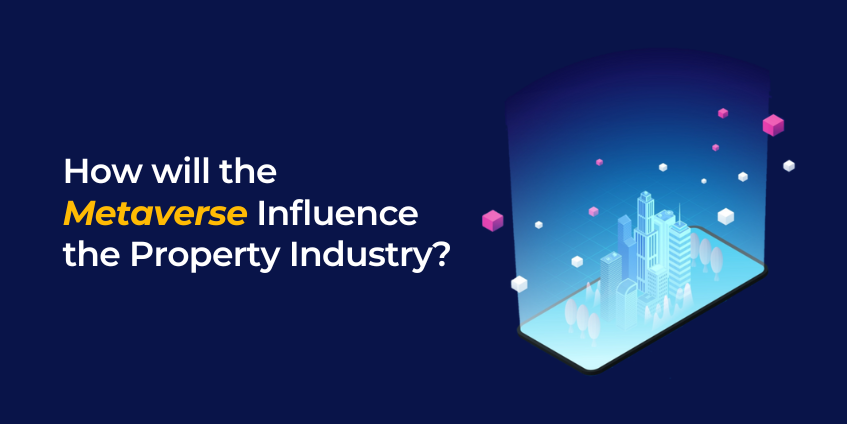
At Property Webmasters, we’ve seen a fair bit of change in all things PropTech. As industry leaders, it is important that we inform people about the latest developments within the property industry. A lot of people still have not heard of the Metaverse, even more, still, the people that have heard about it are still confused as to what it is and how they can get involved.
A few months back there was a substantial initial drive of people involved in the crypto and NFT boom that started to become aware of the metaverse and its potential.
It has been 8 months since the first announcement of “The Metaverse and How We’ll Build It Together” was released across YouTube.
Essentially, the metaverse is a virtual world that is utilised by the use of augmented and virtual reality. The graphically rich platform can be used for people to work, socialise and shop online – mimicking the real world, metaverse aims to build an online experience that is immersive and integrated.
It might not make too much sense at the moment, but remember that a lot of serious, life-changing technological advances happened while the majority of people were against the whole idea. Think Amazon, or even before Amazon, the idea of the internet as a whole was seen as a fad. Social media platforms like Facebook “wouldn’t last”.
Throughout this article, we will look to see how impactful the metaverse has already been, how transactions are struck and what we could see in the future.
Being able to present a digital landscape, the metaverse allows us to buy and sell Real Estate. As mentioned, the metaverse is still in its early stages so investing is speculative and there is still a lot of Real Estate available to be purchased. Despite these early stages and speculation, current trends define that virtual Real Estate has the potential to increase in value as the metaverse pursues its significant growth.
Investors see this as an early-stage-crypto-like opportunity, with the potential upsides, seriously outweighing the downsides as so much is unknown.
Think about it, Meta (the new name for Facebook and Instagram) has rarely failed to make a product or service fail. This can make it tempting for investors to take the plunge.
Getting off to a strong start, Metaverse real estate has seen a large number of investors, including big businesses like JP Morgan, HSBC and Samsung getting involved early doors.
As with everything, those who got in early have seen a return already.
Seeing a 1300% return on the smallest piece of land available less than one year ago is certainly something to behold.
“It is a little bit like buying land in New York City, 250 years ago” – Andrew Kinguel, CEO of Tokens.com
With every investment, there are risks and those must be explored before investing in something so new.
Buying a property to call home in the metaverse is an understandably strange concept, but if there is a demand to buy, there has to be an estate agent that can make that happen, virtually or not. Having a property in the metaverse will allow users to hang out with friends and socialise in a space they can call their own. As well as using the metaverse for its actual purpose, users can also make property investments, similar to reality.
In recent time periods, investors have spent millions when purchasing land in the metaverse. This is due to the fact that many believe that these technologies have and will continue to transform how real estate operates.
The metaverse will have an impact on those in the real estate industry. Containing Real Estate fragments, called parcels, you are able to sell these using a metaverse platform currency. One example is Decentraland. This allows you to do so through its Cryptocurrency token, MANA. Decentraland offers 90,000 plots of land with each plot measuring 16 by 16 meters (in the virtual realm). The majority of Real Estate in the metaverse currently appears to be a fantasy world, yet some virtual real estate platforms sell virtual versions of actual real estate.
Over recent months, investors have spent millions when purchasing land in the metaverse. This is due to the fact that many believe that these technologies have and will continue to transform how Real Estate operates.
Sticking with the Decentraland theme, Metaverse Property claims to be the first virtual real estate company to exist. They support the latest technology including Decentraland, allowing their users to buy and rent land within the metaverse.
Are we going to recommend every estate agent starts to attempt to attract listings in the metaverse, no? But, there can certainly be scope for the most tech-savvy, forward-thinking estate agents to take advantage of.
But unlike the real world the way these transactions work without a middle man (a traditional estate agent). The middleman typically comes in the form of the blockchain, logging a process, paperwork and data for the public to keep an eye on.
The peer-to-peer nature of blockchain would mean the business model of a metaverse estate agent would involve the agent acquiring land before selling it to investors, rather than selling land on behalf of a customer. This certainly elevates the risk but the potential upside can be rather large.
Find out more about how Cryptocurrency & Blockchain is changing the Property Industry!
If you are interested in getting involved, starting sooner rather than later would be wise.